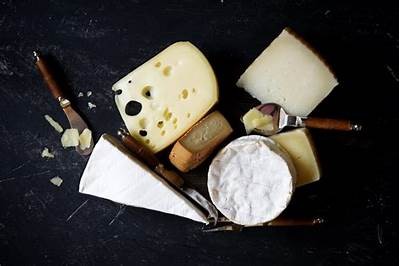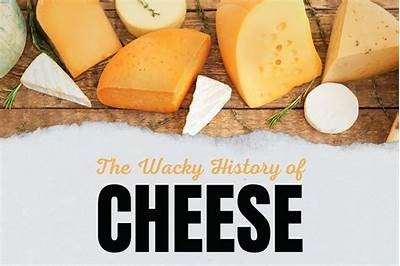- willbt
- snow slingers
- Understanding the Meaning of Getting Cheeses and Its Cultural Significance
Understanding the Meaning of Getting Cheeses and Its Cultural Significance
Published:2025-10-14Edit:OrisVies(2748)
The world of cheeses is not merely a culinary delight; it is a rich tapestry of cultural significance, tradition, and history that varies from region to region. Cheese-making is an ancient art, and the act of obtaining and enjoying cheese often carries meanings beyond just taste. This article delves into the multifaceted relationship humans have with cheese throughout history, examining its various roles across different cultures and societies.

The origins of cheese can be traced back over 7,000 years to the Neolithic period, believed to have emerged in regions like the Middle East and Central Asia. Early cheese-making was a means of preserving milk and providing sustenance in agrarian societies. By examining archaeological findings, it's evident that cheese played a pivotal role in the diets of early civilizations.

Ancient Egyptians, Greeks, and Romans not only consumed cheese but integrated it into their social and religious practices. In Greece, cheese was linked to offerings to the gods, while the Romans established complex cheese-making techniques that spread throughout the empire, leaving an indelible mark on European cuisine.

Beyond its practical uses, cheese has evolved into a symbol of cultural identity. Each region has its own varieties, methods of production, and cheese-related customs that reflect its environment, agriculture, and people. For instance, French cheese is celebrated for its diversity, from creamy Brie to pungent Roquefort, each with its own story that connects to the terroir.

In Italy, cheese is often intertwined with culinary traditions, epitomized by dishes like pizza and pasta. The pride in local cheeses such as Parmigiano-Reggiano and Mozzarella di Bufala speaks volumes about Italian culture emphasizing quality and tradition in food.

Cheese often acts as a social lubricant, bringing people together during communal meals and celebrations. Cheese platters are a staple at gatherings, embodying hospitality and generosity. In many cultures, cheese-making and sharing are communal activities that strengthen bonds among family and friends.
In Mediterranean cultures, sharing cheese and bread is a centuries-old custom that symbolizes unity and community. Festivals dedicated to cheese celebrate local varieties, showcasing the importance of this food item in both culinary and social facets of life. The Rituals of Cheese Consumption
The act of consuming cheese can also be ritualistic. In various cultures, the preparation and presentation of cheese are imbued with significance. For instance, in some French families, specific cheeses are reserved for particular occasions, reinforcing traditions and shared memories.
The practice of wine and cheese pairing is another culturally rich ritual that has evolved into an art form. This pairing not only enhances flavors but also reflects a deeper understanding of local agricultural practices, geography, and cultural preferences. Modern Perspectives on Cheese
In contemporary society, the artisanal cheese movement has surged in popularity, emphasizing the value of handcrafted, locally-sourced cheeses. This renaissance has revived traditional methods of cheese-making while also addressing modern dietary concerns and preferences, such as organic and plant-based cheeses.
Furthermore, the globalization of food has introduced a plethora of cheese varieties from around the world, allowing for cultural exchange and appreciation. However, this phenomenon also raises questions about the sustainability and ethical implications of cheese production on a global scale. The Future of Cheese
As we look to the future, the significance of cheese continues to evolve. With growing awareness around health and environmental issues, the cheese industry faces challenges and opportunities that could reshape its landscape. Innovative approaches to cheese-making, including alternative dairy sources and sustainable practices, represent a burgeoning field of study and practice.
Moreover, the digital age offers new platforms for cheese enthusiasts to connect, share recipes, and participate in virtual tastings, thereby expanding the community of cheese lovers worldwide. Conclusion
In conclusion, understanding the meaning of getting cheeses and its cultural significance reveals the profound connections between food, history, and identity. Cheese is a remarkable lens through which to view human society, embodying the values, traditions, and innovations of cultures around the world. As we continue to explore and appreciate cheese in all its forms, it remains a symbol of community, heritage, and the simple pleasures of life.
Tags
Hots
- Uncover Treasure with Hacksaw Gaming Mines: A Thrilling Adventure
- How to Easily Access Lucky Willbet Slot Login for a Fun Gaming Experience
- Experience the Thrills and Challenges of the Cursed Seas Demo Adventure Game
- Exploring Novo Games: The Ultimate Guide to Innovative Gaming Experiences in 2023
- Exploring the Adventures and Lessons from the Diary of a Wimpy Kid Cheese Touch Book
- Guide to Downloading the WillBet App for iOS Devices: Step-by-Step Instructions and Tips
- Discover No Deposit Real Money Bonuses at Merkur Online Casino Today
- Exploring the Profound Insights and Timeless Wisdom of Athena in Ancient Philosophy
- Experience Real-Time Action with Willbet Soccer Live Updates and Features
- Discover the Exciting Interwetten Bonus Offer of 11 Euros for New Players
FriendLinks
- 1、Experience the Thrill of Sugar Rush Dice: A Sweet Adventure in Dice Rolling Fun
- 2、Explore the Benefits of Using Paysafecard for Secure Transactions on Interwetten
- 3、Enhance Your Betting Experience with Interwetten Live Chat Support Options
- 4、Exploring the Innovative Features and Benefits of the Hedue Measurement Tools for Precision and Performance
- 5、Explore the Exciting Opportunities of Mr Green Bonus and Boost Your Gaming Experience Today
- 6、Exploring the Exciting World of Cassino Web: Discover Games, Strategies, and More